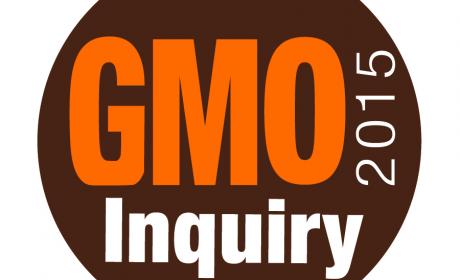CBAN Launches “GMO Inquiry 2015”
Wednesday, February 4, 2015
CBAN
20 Years of unanswered questions on genetic modification in Canada
January 27, 2015. Ottawa. The Canadian Biotechnology Action Network (CBAN) has launched a major public investigation to dig behind 20 years of uncertainty around genetically modified organisms (GMOs) in food and farming in Canada. The project will be called GMO Inquiry 2015.
“We’re stepping up with our own inquiry because our government doesn’t track the impacts of GM crops and foods in Canada,” said CBAN Coordinator Lucy Sharratt. “Our government doesn’t even tell us where GMOs are on our grocery store shelves. After 20 years of secrecy and confusion, Canadians deserve some real information about the impacts and risks.”
In 1995, the Canadian government approved the first genetically modified (GM, also called genetically engineered or GE) crops and foods: 8 herbicide-tolerant canola varieties as well as the first GM soybean (also herbicide-tolerant), two types of GM delayed-ripening tomatoes (both withdrawn from the market by the companies), and the first varieties of Monsanto’s GM insect-resistant potatoes (also later withdrawn from the market by the company).
“Our government introduced genetically modified crops without a public debate or any GM food labelling for consumer choice,” said Taarini Chopra, also of CBAN. “It’s time we get to the truth about how GM technology is changing food and farming in Canada. Critical questions about the impacts of GMOs on our health, our environment, and our economy, remain unanswered.”
CBAN will publish new research throughout the year, examining the major questions of environmental, economic and health impacts of GMOs in Canada.
In 2015, CBAN will investigate:
- Where GM foods and crops are found across the world, and how much is grown in Canada;
- The impacts of GM crops on the environment;
- The issues raised by GM foods for consumers, including safety;
- The impacts of GM crops on farmers;
- The state of GMO regulation in Canada;
- Whether or not we need GM crops to feed the world.
CBAN invites Canadians to send in their questions to help shape the inquiry at www.GMOinquiry.ca
CBAN says their inquiry is urgent because the government has already approved GM 2,4-D- and dicamba-tolerant crops and could soon approve unprecedented GM foods, including the first-ever GM apple and the first GM food animal in the world (a GM salmon).


